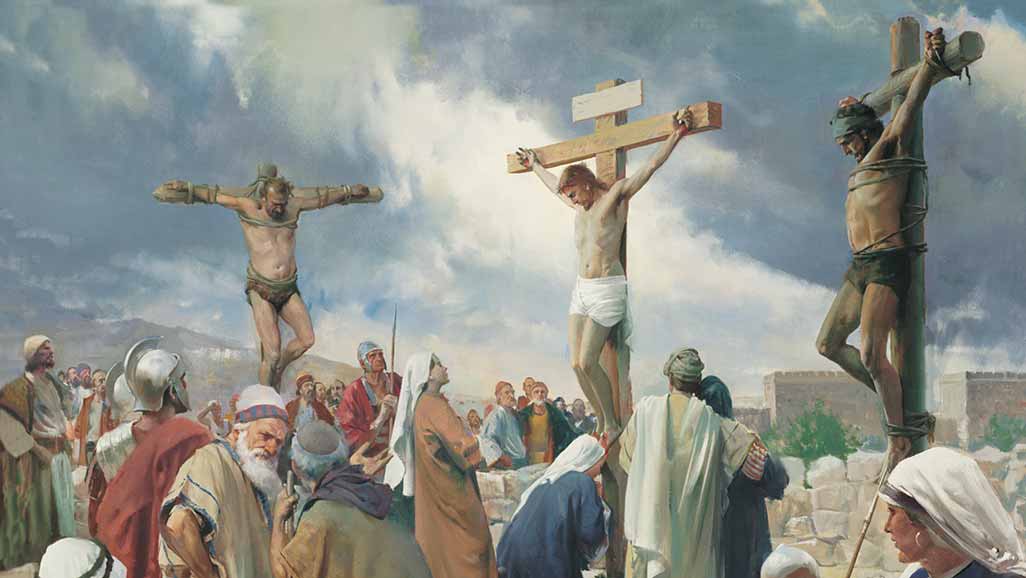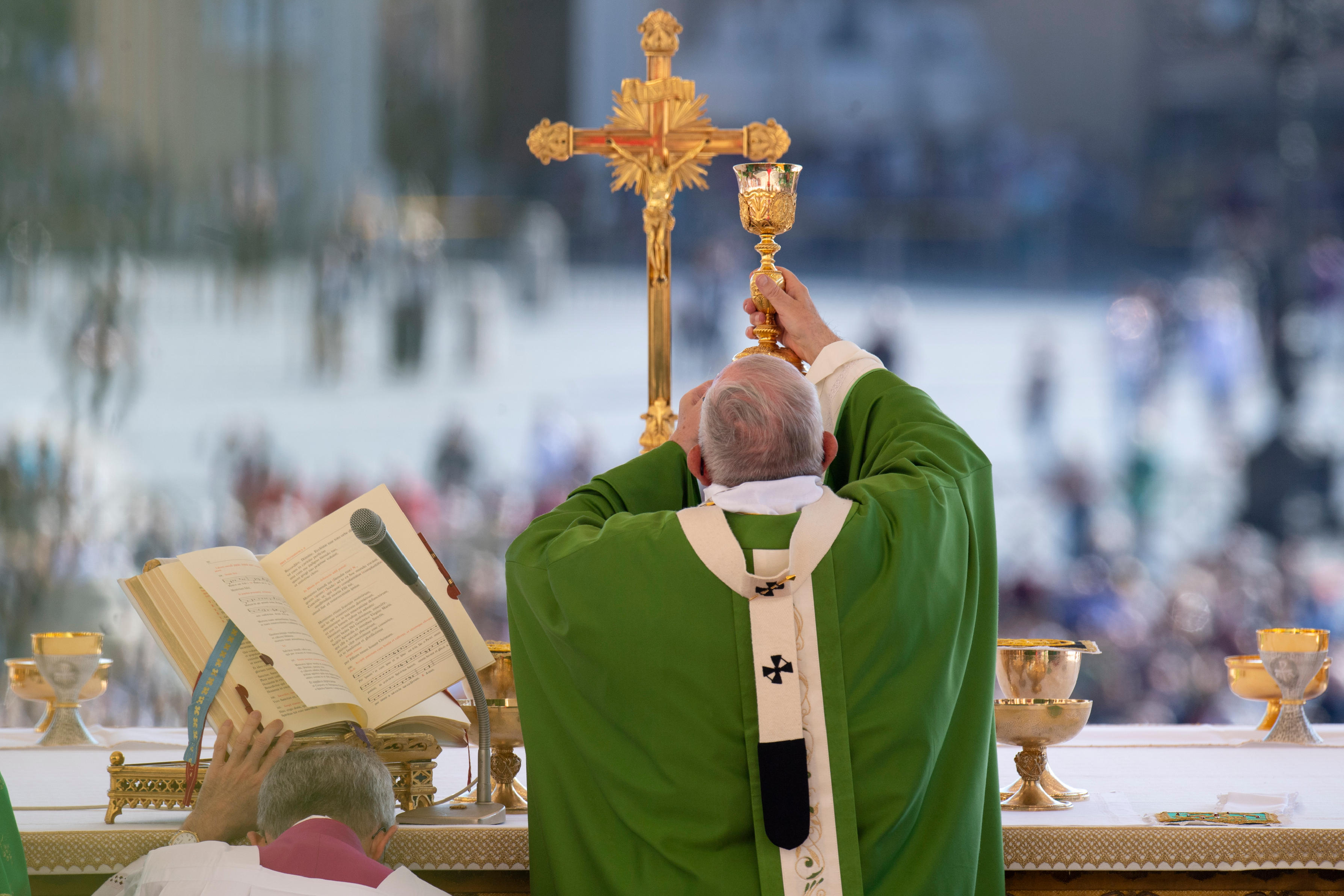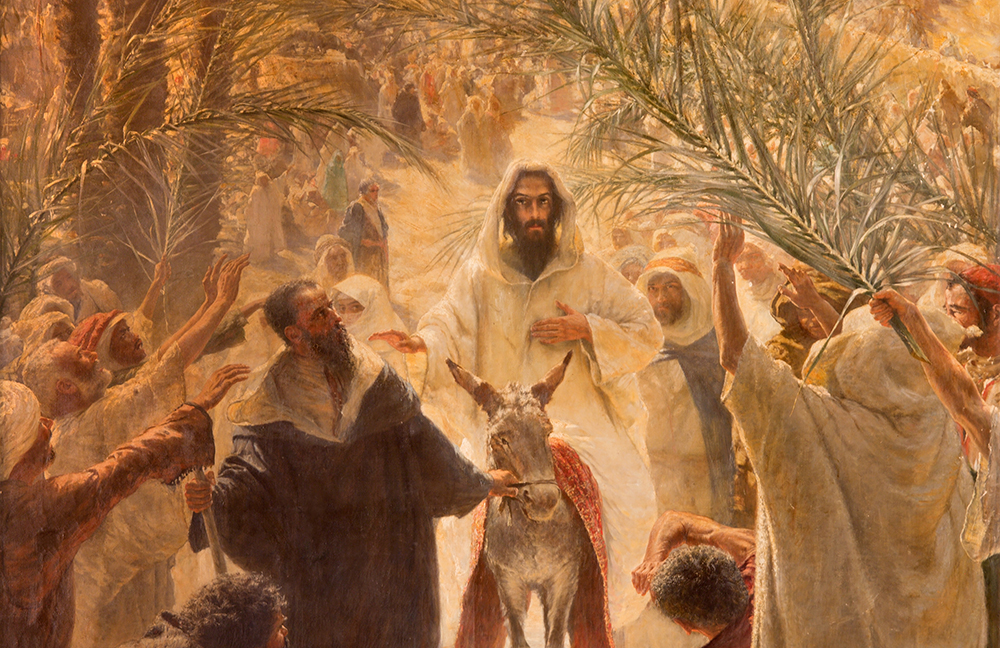In contrast to the chaos of Good Friday and the silent grief of Holy Saturday we experience today wonder, joy and peace. The tomb is empty but in order: "... he saw the linen wrappings lying there, and the cloth that had been on Jesus' head, not lying with the linen wrappings but rolled up in a place by itself. Then the other disciple, who reached the tomb first, went in, and he saw and believed" (Jn 20: 6-8) Our response to the Easter event needs to be one of faith which is "hope in things not seen." (Heb 11: 1) We have not seen the empty tomb nor have we, like the apostles and other disciples, encountered personally the risen Christ. yet, the Holy Spirit has been sent into our hearts as the first fruits of the new creation: "And because you are children, God has sent the Spirit of his Son into our hearts, crying 'Abba! Father!' " (Gal 4: 6)
Without the resurrection our hope are in vain yet we know in faith that death no longer has any power over him: "But in fact Christ has been raised from the dead, the first fruits of those who have died. For since death came through a human being, the resurrection of the dead has also come through a human being; for as all die in Adam, so all will be made alive in Christ. But each in his own order: Christ is the first fruits, then at his coming those who belong to Christ." (1 Cor 15: 20-23) This does not give us solely some historical phenomenon, therefore, but a living hope that we will share with Christ in his glory: "Blessed be the God and Father of our Lord Jesus Christ! By his great mercy he has given us a new birth into a living hope through the resurrection of Jesus Christ from the dead, and into an inheritance that is imperishable, undefiled, and unfading, kept in heaven for you, who are being protected by the power of God through faith for a salvation ready to be revealed in the last time. In this you rejoice, even if now for a little while you have to suffer various trial, so that the genuineness of your faith - being ore precious than gold that, though perishable, is tested by fire - may be found to result in praise and glory and honour when Jesus Christ is revealed. Although you have no seen him, you love him; and even though you have not seen him, you love him; and even though you do not see him now, you believe in him and rejoice with an indescribable and glorious joy, for you are receiving the outcome for your faith, the salvation of your souls." (1 Pt 1: 3-9)









